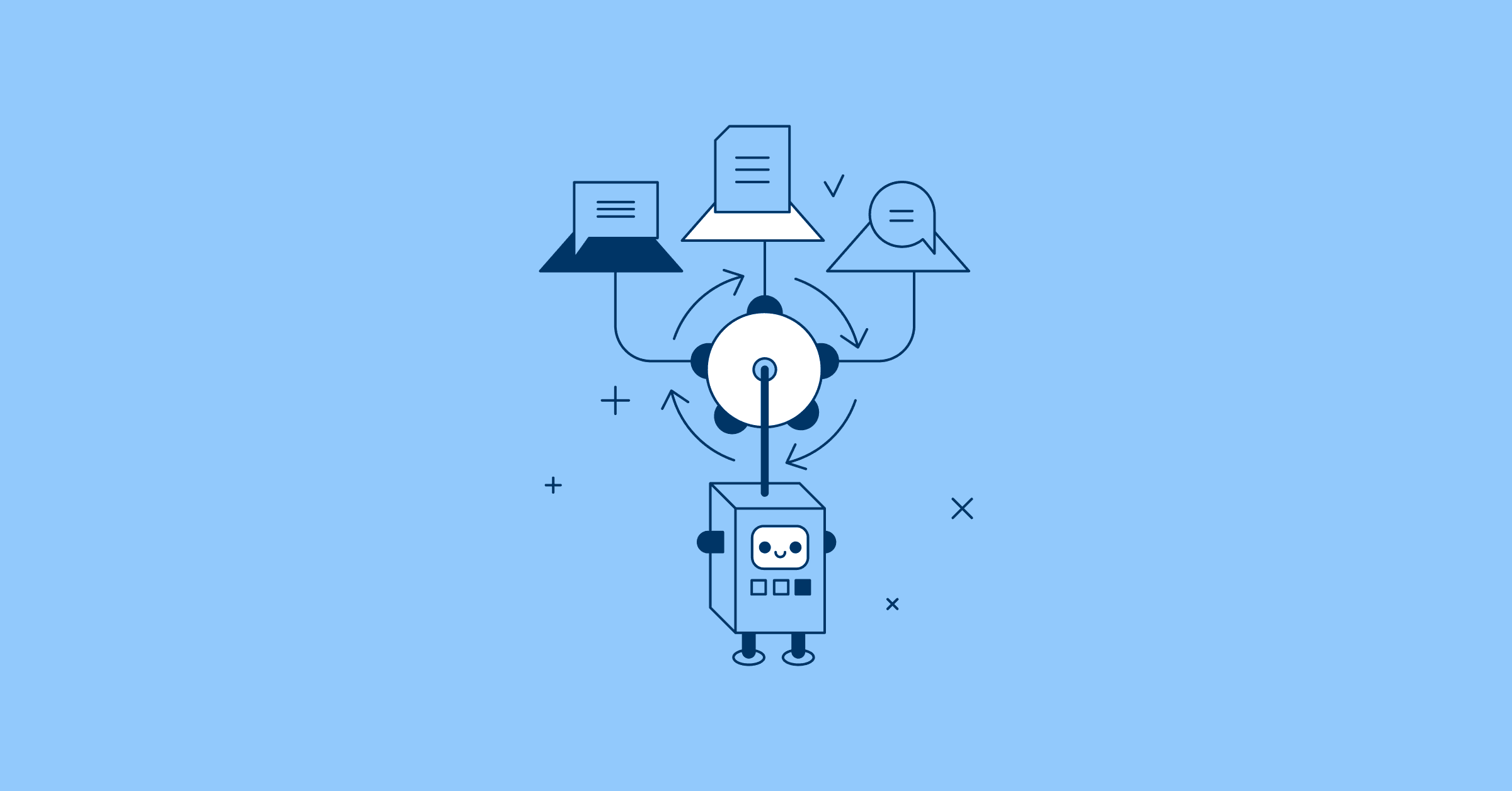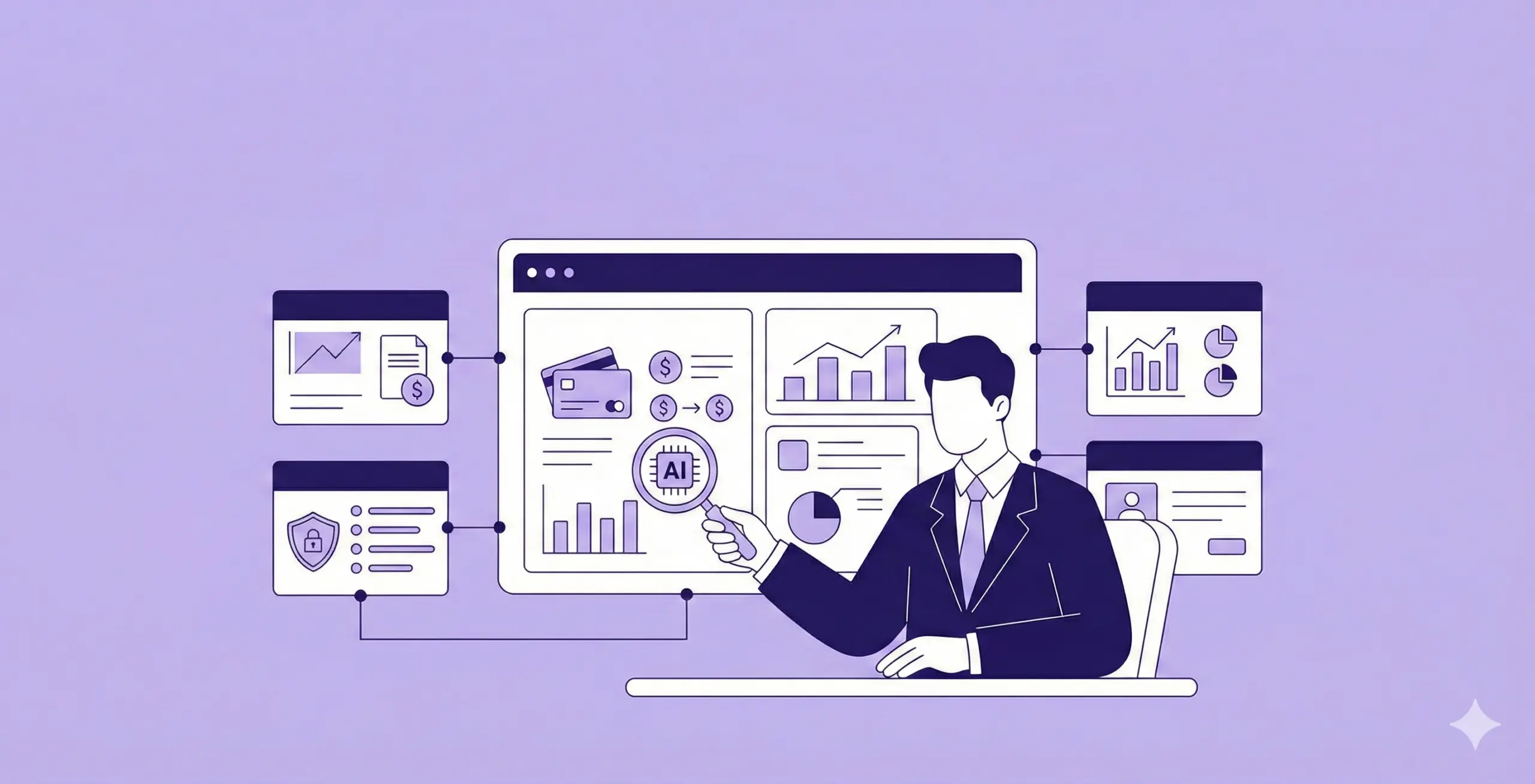October 15, 2023
How is AI Driving Transformational Change in Finance and Procurement?

Sign up for our newsletter
Stay informed with the latest trends and best practices in finance and procurement.

Finance and procurement teams now have a chance to take on more active roles in the direction and success of the business.
These departments are quickly becoming the difference between profit and loss, typically beating analyst, investor, and board expectations. They are now moving to profit centers over cost centers.
Recent research shows around 50% of organizations have adopted AI, including systems like order-to-cash, record-to-report, and procure-to-pay. Within these companies, most are still implementing AI, with the rest already optimizing it in each function.
What is AI in Finance?
AI is short for artificial intelligence and refers to automated systems carrying out tasks that typically require humans.
In finance, AI involves applying advanced computational techniques and ML (machine learning) algorithms to analyze financial data.
Strategic Decision-Making
One of the most impactful changes that AI has brought to finance and procurement is the shift from tactical to strategic decision-making.
As Forbes states, “Faced with an unpredictable global economy, global manufacturers are tasked to manage risk better and prioritize digitalization, optimize MRO spend analysis, or implement a supplier intelligence solution as part of their procurement processes.
“These reformed goals mark a pronounced shift for procurement executives: transitioning their plans and strategies from purely tactical operations to a new strategic decision-making model, using AI-enabled technology.”
The statistics don’t lie. It’s no wonder 90% of companies expect to build more resilience and agility in their procurement operating model in the next three years. 87% of companies also seek predictive insights by building and strengthening digital and data teams.
Top Ways AI is Driving Transformational Change
What are some ways in which AI is driving transformational change?
Influencing Supplier Selection
Artificial intelligence promotes data-driven supplier selection, analyzing vast amounts of supplier information, including performance metrics, financials, and historical data. This technology assists in selecting the most reliable and suitable suppliers.
Spend Classification
Understanding internal spend is important. Specifically, organizations look at the three “W’s”:spent, on , and . This must be effectively managed to comply with external contracts and internal policies. Companies can gain a strong business advantage with accurate spend data and insights.
According to research, projects using AI in spend classification have achieved 97% accuracy when classifying expenses.
AI streamlines analysis by automatically tagging and classifying item details, enriching this with insights from both internal and external sources.
For example, AI automatically categorizes an expense item based on NLP analysis. It can also identify products purchased from sustainable suppliers and compare expense data to previous periods, alerting team members to important changes.
Sourcing Strategies
Finance and procurement teams lean on AI to drive high-level sourcing strategies. This includes comparing savings potential versus risk.
AI identifies shifts in global supply trends, ingesting millions of data points, and providing accurate predictions that enable better decision-making.
Real-Time Example
Tools for AI will analyze social media sentiment, weather patterns, and macroeconomic data to predict that the price of corn will likely spike next month. A company purchasing corn can lock in prices now, increase its purchases this month, or use a financial instrument to hedge its pricing strategy.
This provides transparency in the supply chain, identifies new sources of supply, and continually optimizes spend allocation.
Financial Analysis
Artificial intelligence ensures accuracy and compliance during reporting. AI automatically generates reports, identifies trends, highlights predictive patterns, and aids in investment strategies.
Smart algorithms help execute trades based on complex market analysis, optimizing strategies and responding to real-time shifting market changes.
Purchase Order Processing
AI enables automated purchase order processing to streamline document creation, approval, and management. This reduces manual processes, human errors, and processing times. It also streamlines approvals and mitigates compliance risks.
Contract Management
AI extracts key contract data, identifying important clauses and alerting stakeholders to critical dates. This ensures compliance and reduces contract-related risks.
Recognizing Patterns
AI-powered algorithms analyze historical data and external factors to identify patterns and accurately predict demand. This allows businesses to optimize inventory levels, reduce stockouts, and make more informed procurement decisions.
Intelligent AI systems will analyze spending patterns and identify areas for cost savings. AI analyzes contract terms, supplier pricing, and market trends. It will then suggest strategies for stronger negotiations and smarter sourcing. This helps a company achieve better pricing and terms while reducing repetitive tasks.
AI will continuously monitor market trends, supplier performance, and pricing fluctuations. This allows companies to make timely decisions based on the most up-to-date information.
AI models will also analyze historical and current data to improve budgeting accuracy and create more realistic financial forecasts.
Risk Management
AI assesses supplier risks by monitoring various data sources and indicators. This includes:
- Financial stability
- Geopolitical factors
- Market conditions
This approach helps mitigate supply chain disruptions and detect fraud.
AI models analyze transactional data to find unusual patterns or anomalies, enhancing the ability to identify risk. Systems run complex financial regulations by analyzing large swathes of data and identifying potential violations.
Revolutionizing Traditional Processes
AI touches on every aspect of finance and procurement. Research from Deloitte shows how it can impact and transform all elements of the source-to-settle or procure-to-pay cycle.
In procurement and finance, AI-driven transformations improve accuracy, efficiency, and strategic decision-making. By automating routine tasks, providing insights from complex data sets, and enabling predictive capabilities, AI empowers companies to adapt to changing market dynamics and drive better business outcomes.
It’s also important to note that successful AI implementation requires careful planning, data quality, and ongoing monitoring to ensure optimal results.
It Starts with the Right Tools
In order to achieve optimal AI integration and drive transformational change, a business needs the right tools. PayEm is an industry-leading platform that transforms how companies manage their spend and procurement processes.
Paying vendors has never been easier, with spend management features that allow a business to schedule payments and transfer funds via ACH wire. The PayEm solution supports a multitude of regions across 180+ countries and territories.
The system seamlessly integrates with top brands like NetSuite in minutes. Reconcile journal entries and bill payments with one click, manage all POs with real-time visibility, and handle daily tasks more efficiently.
How does it leverage AI for finance and procurement?
PayEm has advanced AP automation technology designed to offer visibility into the entire AP lifecycle.
The PayEm solution has real-time budget visibility, customizable workflows, diverse payment options, and tailored benefits for different roles. The AI-driven system empowers organizations to optimize their financial processes, achieve tangible business outcomes, and drive long-term success.
Successful implementation of AI tools requires a solid comprehension of the technology, high-quality data, and thoughtful integration. Book a free demo with PayEm right now.

